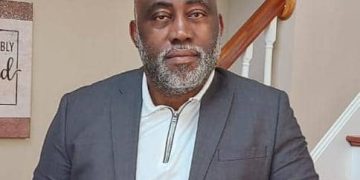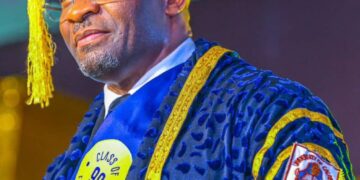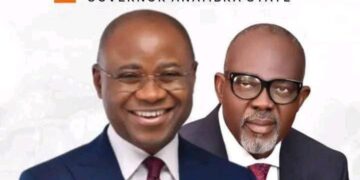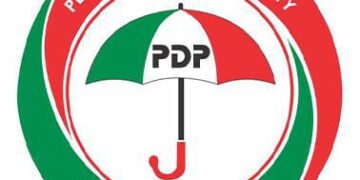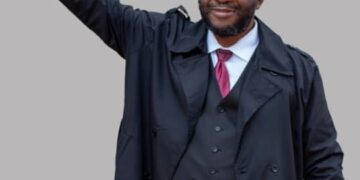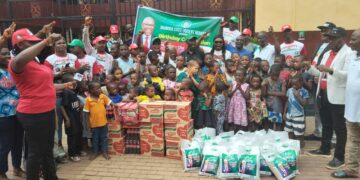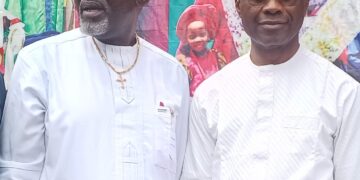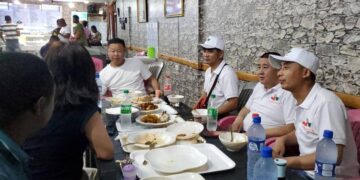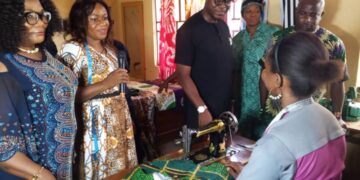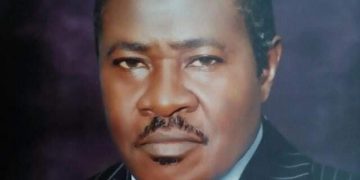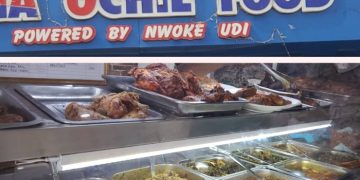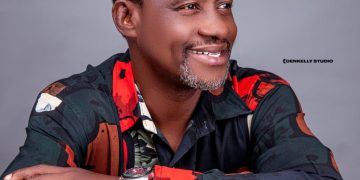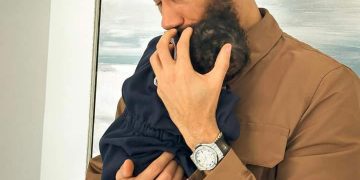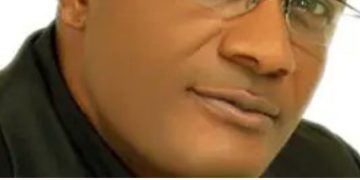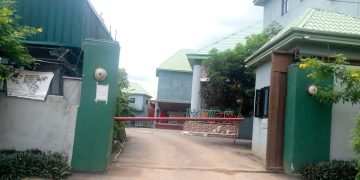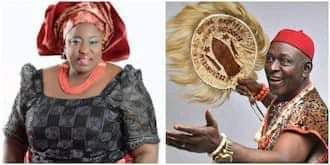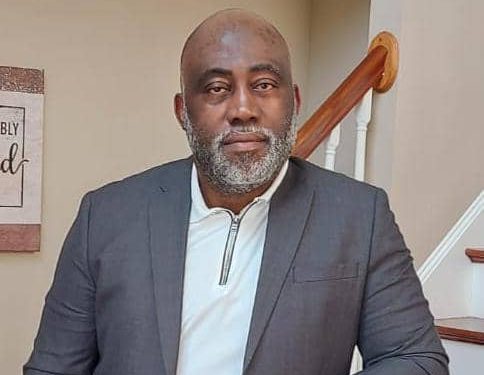Tilova for Africa believes Society should treat treat everyone equally… Nwabueze
Mr Martin Tilova Nwabueze is the Chairman of Tilova Africa a charity organisation set up to champion the course of minority groups in Africa. He co founded the organisation with with his wife Dr Chisomu Nwabueze and Son Osinachi Nwabueze, he speaks on the activities of the foundation
What Tilova for Africa is all about .
Tilova for Africa is an NGO, a non-profit charity organisation registered and headquartered in Pelham, New Hampshire USA. Our focus is mostly on hunger alleviation but in general we strive to bring succor to the most vulnerable and oppressed in our communities. These groups include but not limited to the poor, the ostracised like the OSU and the sick such as HIV/AID patients and also the LGBTQ people.
What informed the formation of that Organisation ?
A lot of factors commingled to birth Tilova for Africa. The most important factor being that the founders are charitable people who have been actively involved in charity for years both in Africa and USA. As first generation American immigrants the founders consider themselves lucky for the opportunities America has availed them so we decided to do something to give back to the less privileged back in mother continent Africa. Also when my friend was murdered in South Africa for no other reason than being gay, I decided to do something to shed light on the plight of the LGBTQ people in Africa.
What is the scope of Tilova for Africa mandate, what are the core advocacies ?
Our scope I can say is limitless but rather determined by the availability of resources both human and financial needed to execute operations and bring positive change. Our advocacies also include the fight to end the marginalisation of certain minority groups such as OSU people, Single mothers, HIV/AIDS people and the LGBTQ people among us.
Talking about Osu Caste, what is it and where is it practiced, any similar practice in other cultures?
The OSU caste system, just like other caste systems, is the practice of ostracising a group of people by the larger society, depriving the ostracised ones from full participation in the socio-cultural practices and activities of the societies where it is perpetuated.
The OSU caste system is practiced by the Igbos of the South Eastern part of Nigeria.
While there are other caste systems in different societies all over the world, the OSU caste system is unique in the sense that it is the only cause system perpetuated as a result of fear of the ostracised.
In other caste systems, the ostracised are regarded as inferior by those that regard themselves as free borns but in the case of the OSU caste system the so called free borns isolate the OSU people out of fear of the retaliation of the Gods.
You see the OSU people are people whose ancestors ran to the gods for protection and were declared as the children of the gods or deities. In fear of the gods, people stayed away from them. In traditional Igbo society the gods are revered so the isolation of the OSU people is in reverence of the Gods not because they are considered inferior.
The OSU people are different from the ORU people like Ikemefuna of the Chinue Achebe’s Things Fall Apart , the ORU people are the ones that were ostracized because they were inferior. While we have eliminated the ORU caste system, we have not been able to eliminate the OSU caste system because it is perpetuated by fear and fear is a very stubborn instinct.
What is the effect of segregation and stigmatisation of HIV patients on subsistence and spread of the virus in Africa
You see when societies segregate and stigmatise people; such people pay back with hate and sometimes violence. Stigmatization degrades people and with such degradation comes mental health issues like depression. It has been established that depression may lead people to degenerate to a state where they are incapable of making right choices for themselves and others around them. So when we segregate the HIV/AIDS patients they become depressed and frustrated making them resort to irrational behaviors, risky and unhealthy behaviors like unprotected sex, intentionally trying to infect others.
Such risky behaviors increase the spread of the disease and endangers more lives. Also the fear of being segregated and stigmatized prevents HIV/AIDS patients from making their status public, seeking medical help which are readily available to reduce chances of death and reduce viral loads to undetectable levels and levels they cannot be transmitted through sex. Stigmatization also prevents the general public from testing which is an important tool in the fight to stop spread of the disease. So it is a vicious cycle which if not interrupted will ultimately translate to more people being infected leading to the perpetuation of the epidemic.
You talked about LGBTQ, are you preaching same sex practice, if not, what is the interest of the Tilova for Africa in this group of people.
We are not preaching any type of sex be it same or opposite sex, we are not a sex advocate group rather we are an equal rights advocate group. We envision a world where every member of the society will have the freedom to live their life, live their truth without fear, without discrimination or marginalization. We preach equality of all under the law and we are empowering people of good will to mobilise against attacks on the most marginalised people in our communities.
Our interest in the LGBTQ group is the same interest we have in other marginalised groups like the OSU people and the HIV/AIDS patients. But I think because in this part of the world the LGBTQ people are the most marginalised and persecuted, Our advocacy appears to be most visible in that group. Our advocacy against marginalisation is borne out of our conviction that societies function better and more peacefully when we allow for more inclusion and when we practice equal rights for all and not just for some.
The second paragraph of the United States declaration of independence summarises it best by stating that, ” We hold these truths to be self-evident that all men are created equal and that they are endowed by their creator with certain unalienable rights, that among these are Life, Liberty and the Pursuit of Happiness” This equality of all before God also forms the foundations of the doctrines of the world’s major religions.
The Organisation has a Charity arm, how are you going about it, how do you mobilise funds for this work ?
The charity arm of Tilova for Africa is the most important and active. We are disbursing funds to those that need them directly through our website and on social media. We are also working with other NGO based in Africa for more efficiency. Funding is very important to our work and currently our funding comes from our personal contributions and contributions from kind donors. As we expand we hope to get funding from the government and organizations too.
You have been in Nigeria and you have had advocacy visits, public enlightenment sessions and outreach, tell us more about it
Our activities in Nigeria have been more impressive than what we expected. Our symposiums and events were well attended and our messages were well received. We spoke on very sensitive issues and took our message to places such messages had never reached before now. We were in different countries and in different states in Nigeria. We met with community leaders, we interacted with the people and med with traditional rulers. We also had meetings with government officials all geared towards assuring that our actions achieve the intended goals.
You signed a Memorandum of Understanding with the National Human Rights Commission, why is that partnership important to Tilova for Africa and what value does it bring to the Foundation.
Executing the partnership with the National Human Rights Commission is very important to us because it is a validation of our authenticity and genuine purpose. The NHRC is the apex Human Right arbitrator in Nigeria and as a rights group we are excited that they found us worthy of partnership. That is a recognition of our hard work and motivation to do more. Going forward we are optimistic that the partnership will help Tilova for Africa logistically and with exchange of knowledge that will help our organization execute or goals and objectives in a more efficient and professional way.
Who are partners and what type of support do you need to effectively carry out these objectives of yours?
We have formed many partnerships that have been made public and are working hard to execute more partnerships. We have the one with NHRC, we have the one with the Public Complaints Commission and we have partnerships with many other NGOs across Africa. These partnerships are important to us as they are synergistic to our efforts to bring positive changes to various communities across Africa especially Nigeria.
For our message and efforts to reach more people and effect change we need the support of all men of goodwill, donors, sponsors, media, volunteers so that together we will be able to give voice to the voiceless and make the world a better place for all.
